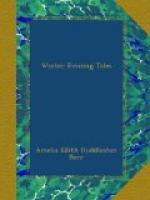But Livesey, though probably suffering as keenly as others, joined no body of rioters. He borrowed a sovereign and bought two cheeses; then cutting them up into small lots, he retailed them on the streets, Saturday afternoons, when the men were released from work. The profit from this small investment exceeding what it was possible for him to make at his loom, he continued the trade, and from this small beginning founded a business, and made a fortune which has enabled him to devote a long life to public usefulness and benevolence.
But his little craft must have needed skillful piloting, for his family increased rapidly during the disastrous years between 1816 and 1832; so disastrous that in 1825-26 the Bank of England was obliged to authorize the Chamber of Commerce to make loans to individuals carrying on large works of from L500 to L10,000. Bankruptcies were enormous, trade was everywhere stagnant, L60,000 were subscribed for meal and peas to feed the starving, and the government issued 40,000 articles of clothing. The quarrels between masters and spinners were more and more bitter, mills were everywhere burnt, and at Ashton in one day 30,000 “hands” turned out.
During these dreadful years every thoughtful person had noticed how much misery and ill-will was caused by the constant thronging to public houses, and temperance societies had been at work among the angry men of the working classes. Joseph Livesey had been actively engaged in this work. But these first efforts of the temperance cause were directed entirely against spirits. The use of wine and ale was considered then a necessity of life. Brewing was in most families as regular and important a duty as baking; the youngest children had their mug of ale; and clergymen were spoken of without reproach as “one,” “two” or “three-bottle men.”
But Joseph Livesey soon became satisfied that these half measures were doing no good at all, and in 1831 a little circumstance decided him to take a stronger position. He had to go to Blackburn to see a person on business; and, as a matter of course, whiskey was put on the table. Livesey for the first time tasted it, and was very ill in consequence. He had then a large family of boys, and both for their sakes and that of others, he resolved to halt no longer between two opinions.
He spoke at once in all the temperance meetings of the folly of partial reforms, pointed out the hundreds of relapses, and urged upon the association the duty of absolute abstinence. His zeal warmed with his efforts and he insisted that in the matter of drinking “the golden mean” was the very sin for which the Laodicean Church had been cursed.
The disputes were very angry and bitter; far more so than we at this day can believe possible, unless we take into account the universal national habits and its poetic and domestic associations with every phase of English life. But he gradually gained adherents to his views though it was not until the following year he was able to take another step forward.




